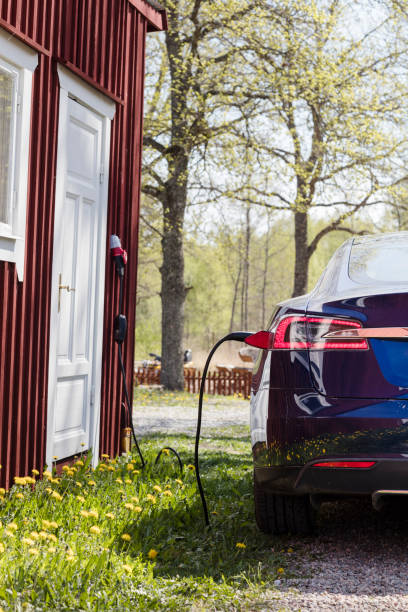The Competition for the Electric Vehicle Market
March 16, 2021
Electric cars are the way of the future, and each year we’ve seen automakers add more electric vehicles (EVs) to their lineup. Interest is surging in new competitors that might be “the next Tesla.” The manufacturing industry is making big leaps to meet the demands of EVs and they are steering away from gas-powered vehicles.
Wall Street investors think Tesla is worth more than General Motors (GM), Toyota, Volkswagen, and Ford put together. Tesla was the first foreign carmaker permitted to open a factory in China without a Chinese majority partner. After opening its factory in Shanghai, the company became the largest seller of EVs in the country.
China has the world’s biggest car market, and is now working with GM, who has already committed to spending $27 billion to introduce 30 electric vehicle models by 2025.
Senior GM executive, Dane Parker said the company was looking at sites for more battery plants and working on future electric models. “To be ready for 2035, I need to build battery plants, I need to do battery development, I need to develop electric vehicles,” Mr. Parker told the New York Times.
One advantage of electric vehicles is that many can be recharged anywhere you go free of charge by 2030. As more electric vehicles hit the market and are used more broadly, new recharging solutions, including adding more public charging locations in shopping centers, parking garages, and workplaces will be required for people and businesses without the same access at home. Utilities in California are investing more than $1 billion to build the charging infrastructure necessary for electric cars, trucks, and buses throughout the state. These kinds of infrastructure investments will become increasingly important for public transit agencies, businesses, and people who want to purchase an electric car but are unable to install a charger at home.
The benefits of electric vehicles are clear, but as with any step forward, there will always be problems that accompany it. One negative effect could be on independent neighborhood auto mechanics. Electric vehicles don’t require oil changes, new spark plugs, fuel filters, replacement fluids, and much of the routine maintenance that keeps the nation’s estimated auto repair workforce. The Bureau of Labor Statistics estimates that there were 938,000 people employed in the Automotive repair & maintenance Industry Group.
But auto mechanics won’t completely go away due to car lovers who love antique cars. Many Electric cars will be serviced at the dealerships, due to them being trained on how to fix them.
Toyota, whose cars currently make up more than 80% of the global hybrid vehicle market, according to Reuters, announced plans to generate half of its sales from electrified vehicles by 2025, five years earlier than it previously estimated. Despite having its battery-making operation already, Toyota, like GM will partner with Chinese battery manufacturers to meet demand.
Audi, markets a variety of electrified SUVs like the E-Tron, and is developing other designs as pure electrics, the Audi of America spokesman, Mark Dahnke said to Forbes. The challenges are formidable: “You have to realize that everything on the car you now take for granted, wheels, brakes, tires you have to optimize for efficiency,” he said.
While weight reduction is important to all cars and trucks, it’s especially crucial with EVs, mainly because of the battery load. And because the batteries that often are set low in the vehicle, the center of gravity in EVs is different from that in a conventionally gas-powered car.
One of the other many areas where Tesla currently has a clear lead over the competition is battery technology and the efficiency it has from its power packs. As an example, the Tesla Model 3 Standard Range Plus manages 267 miles out of a 54kWh battery.
Rivian, a new brand of car, is one of the best known competitors of Tesla’s future. Ford and Amazon are among its biggest investors, and Rivian recently raised an additional $2.5 billion in funding. Before that, it had raised some $700 million in one round and $500 million in another earlier round. Rivian said it plans to begin producing its off-road-capable pickup, the R1T, SUV, and the R1S, in 2022. Rivian R1T which could be the first all-electric pickup truck to hit the market in 2022.
The GMC Hummer EV is the other electric pickup truck coming in 2021. However, the vehicle is expected to be fairly expensive and it isn’t likely to have as big of an impact on the market as the Tesla Cybertruck or the F-150 Electric.
As more EVs hit the market, new research shows that battery powered cars will soon be cheaper to buy than conventional gasoline ones, studies have shown that this will most likely not happen until 2024.

